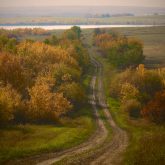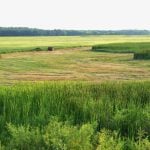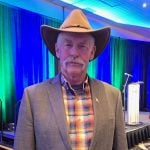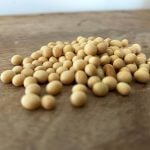When my husband and I kid around about what makes us happiest in our marriage, his answer will always be cookies and me letting him buy more cows, and mine would be “more holidays.”
While there’s some truth to this good-hearted humour, I wanted to dig deeper and ask folks from farming and ranching lifestyles what qualities and actions make a marriage healthier, happier and more secure.
After all, last year, I wrote a two-part series title When the Farmhouse Crumbles: Divorce on the Farm, so it’s only fair we delve into how we might avoid getting there in the first place.
Read Also
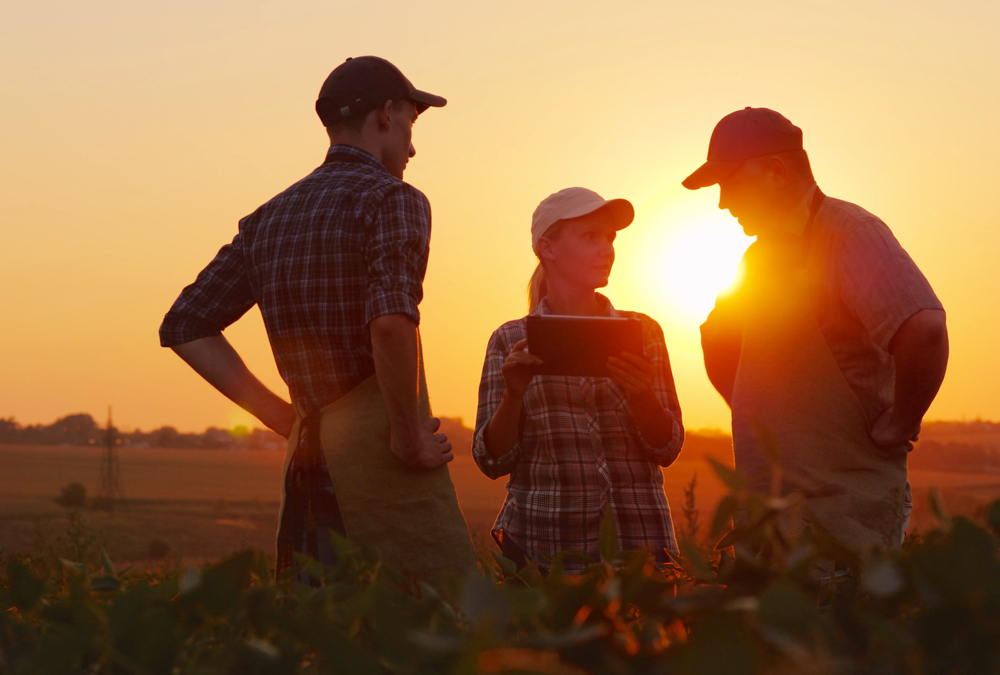
Lauren Sergy on communication: Teamwork makes the dream work
If you were asked to envision a librarian-belly dancer, I am not sure what picture would come to mind. But…
Dr. Gary Chapman authored the book The Five Love Languages, and named those languages words of affirmation (compliments), quality time, gifts, acts of service and physical touch.
The premise is quite simple. “Different people with different personalities give and receive love in different ways. By learning to recognize these preferences in yourself and your loved ones, you can learn to identify the root of your conflicts, connect more profoundly and truly begin to grow closer.”
Is it really that simple, though? And is it more complex for farming and ranching couples?
I’ll be honest here: when navigating my new marriage years ago (we just celebrated 13 years married this October), I often reflected on how different I found farm marriages to be compared to the marriages of my friends “out there” or “from the city.”
I reflected on how many marriages I knew had two spouses working “out of the home” and then convening back home after work to share the responsibilities of home and children.
It often didn’t seem like that on the farm. Farm operations are generally so busy that there are seldom “weekends off.” Moreover, the relationship’s primary “farmer” may be too busy on the farm to contribute equally to the domestic chores at home and with the children.
So, as I got to know more and more people in my community, I found myself often chatting with them about their experience in this life of farming and navigating families and marriage.
Deep roots, long histories
Early on, I began writing about and photo- graphing the people I was surrounded by. They have deep roots and long histories, and I’m passionate about capturing as many stories as I can.
I remember when my neighbour, who recently passed away a week shy of his 98th birthday, told my husband and I to “trust each other even during the hard times.”
When I sat down to write my first book, I looked to no other than the other women in my community for advice. After all, there are more than 700 years of marriage experience from the women in my book Farmwives in Profile: 17 Women, 17 Candid Questions About Their Lives, Photos and Recipes.
Some key pieces of advice were:
- Don’t do anything in the first year that you won’t want to do for the rest of your life.
- Learn to listen to each other and show compassion.
- Support your partner through the good and the bad; always be there for one another.
- Be sure to make time to enjoy each other’s company.
Dan and Carol Ohler have operated as relationship coaches in Alberta for over 20 years. They suggest consciously looking for and verbally acknowledging the things both you and your spouse do that are working. They recommend recognizing and regularly sharing specific things you love, admire and respect about each other.
“Make time daily to talk about their relationship, family, feelings — not just the farm,” says Dan Ohler.
“All people have the capacity and ability to love — themselves and others. All people are incredibly resourceful and can deal with almost anything that comes their way,” he adds.
Seasons
All couples experience “seasons,” good times and bad. There’s a reason that so much of the existing advice cycles decade after decade.
What was clear in my article series covering divorce on the farm was that if a relationship sours and ends, it can be a significant risk to the farm business.
SWOT analyses in businesses assess strengths, weaknesses, opportunities and threats. So, perhaps in our farm and ranch marriages, we should be looking at it the same way:
- What are the strengths and weaknesses of the marriage?
- What do we hope for in the coming year from the marriage or see as opportunities?
- Can threats be identified, and how can they be minimized?
Both relationships and businesses will experience upturns and downturns. It’s nearly impossible to operate a farm or ranch without an accountant, lawyer, financial planner or soil expert.
Yet, as Ohler says, “farmers and ranchers often seem to be resistant to hiring expertise in relationships.”
Hiring professional help is a strength, not a weakness.
Ask for what you want
Most experts will agree that couples must learn how to listen to their partners’ perspectives and openly ask for what they need so their partner can hear their request without feeling defensive.
In stories of divorce, all too often, busy couples can withdraw from the relationship, allowing for their friendship, connection and love to fade.
In her blog Marriage on the Farm, farm family coach and author Elaine Froese writes her number one tip is: “Decide your relationship is a top priority. Your mindset and attitude will influence all of your behaviour towards your spouse. Marriage on the farm only works if you make it a priority.”
Next, Froese suggests: “Ask your mate how they like to be cared for by you.” Then, “lead with love.”
In her newsletter, Froese recently wrote: “If you could follow only one rule — starting today — choose to live in appreciation versus expectation.”
She goes further to say that “living in appreciation of the present moment is way better than choosing to be trapped in a nasty ‘I deserve’ mindset.”
As Jalene Mauws, a good friend and neighbour, says, a simple thank you and “I appreciate you” go a long way. To her, communication is key.
Avoid the Four Horsemen
In their relationship coaching experience, Dan and Carol Ohler find that farm and ranch couples experience the same stress- ors of finances, communication breakdown and infidelity as other marriages. However, farm- and ranch-specific issues can chime in, such as too much work, extended family relationships and intergenerational transfer. Ultimately, though,“it is always based on ineffective communication.”
Ohler adds there are some worrisome signs married couples should look out for in their marriage. Drs. John and Julie Gottman, psychologists and founders of the Gottman Institute, described the “Four Horsemen,” which are destructive behavioural patterns that lead to a troubled relationship and an eventual breakup. They include criticism, contempt, defensiveness and stonewalling (refusing to communicate).
Our farm and ranch businesses need to have long-term visions and goals. They require a lot of work and long hours seasonally. But don’t let the farm come at the expense of your spouse and family. It’s not a positive for anyone to feel like they’re playing second-fiddle or that they’re not a priority.
The key ingredient of both a farm business and a marriage is a healthy relationship. So, it’s a good idea and often complementary to keep both strong. If someone in the relationship feels like things need work, Ohler says, “those feelings are real and valid and can provide great insights, direction and learnings — both in the relationship and the business.”
One of the greatest assets of this farming and ranching life is being grounded. To work the land for generations requires a deep appreciation for Mother Earth and a desire to be good stewards.
“Farmers and ranchers are often involved in their community, often as volunteers, and seem to see their lives as bigger than themselves,” says Ohler.
And, so, to sum up all of the knowledge I’ve soaked up from experts, community members and books I’ve read, I’ll leave you with a great quote from Dan Ohler, who says, “Make time for fun together every day. Laughter is inexpensive, easy, healthy, salt-free, fat-free, gluten-free and available anywhere.”
Until next time, keep baking and book that next trip!
—Billi J. Miller is a published author, photographer and speaker from east-central Alberta. She freelance writes from her home office where she can be reached through her website at billijmiller.com. For more on her Farmwives books, visit billijmiller.com/farmwivesbookproject.





